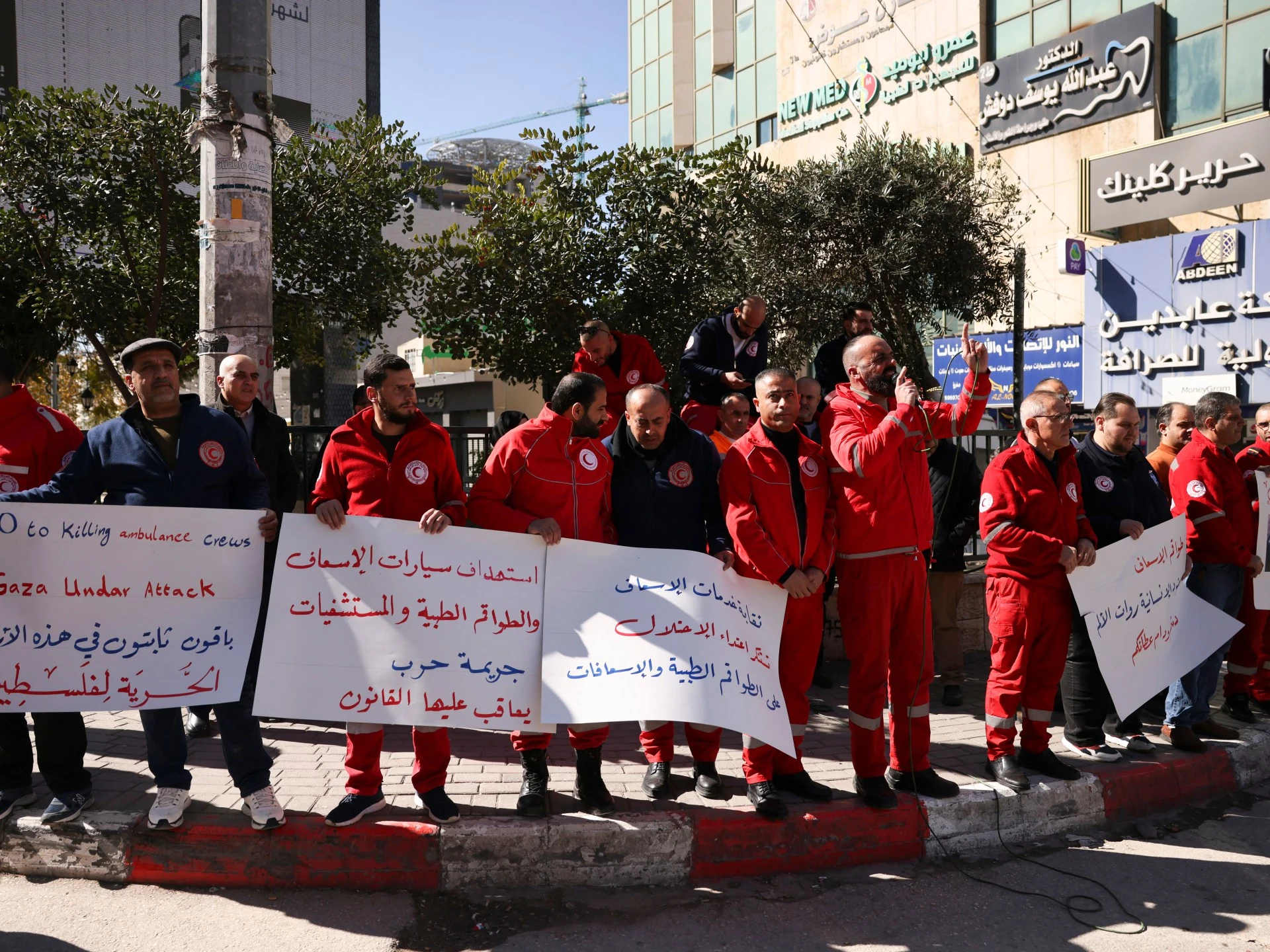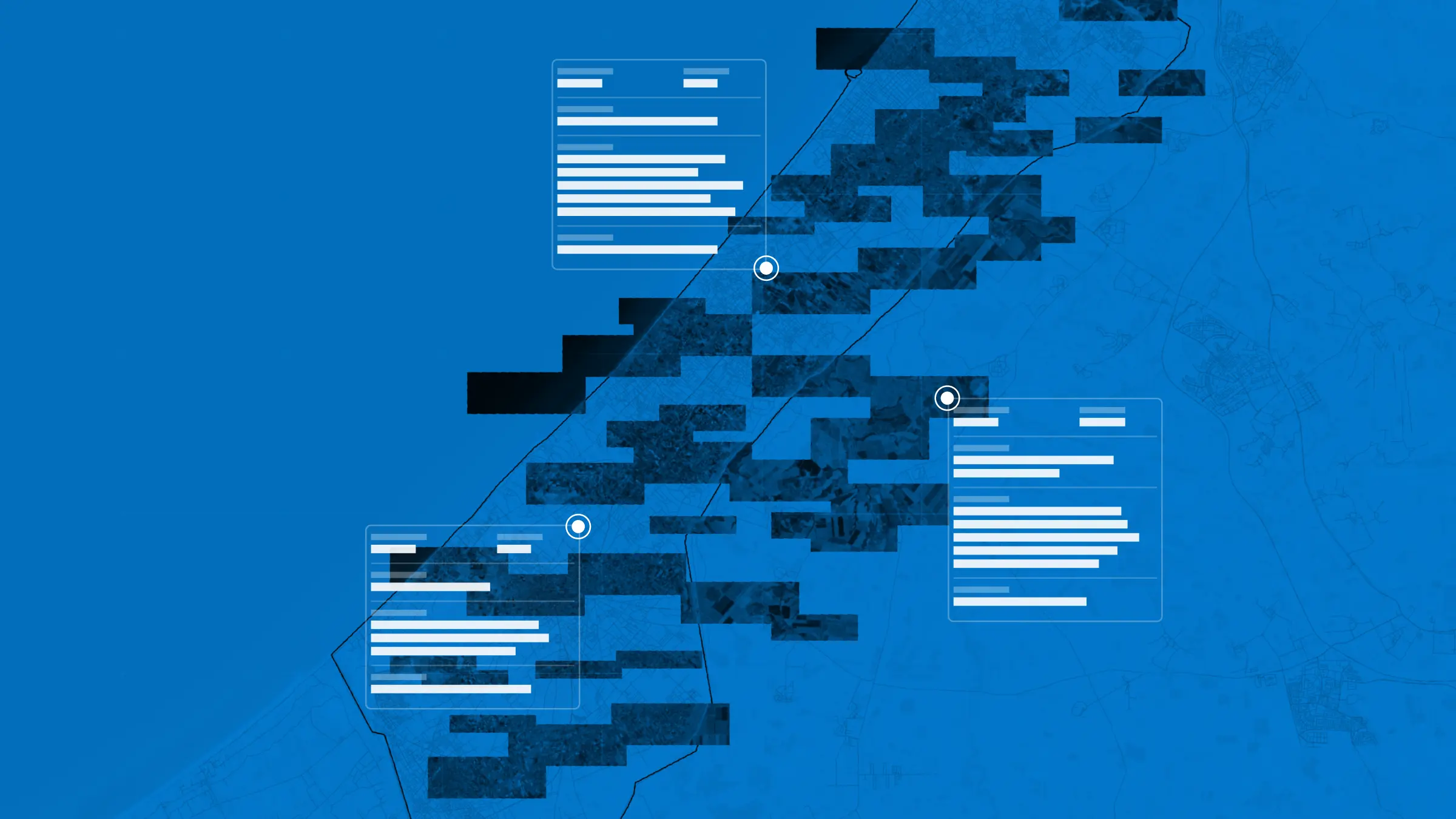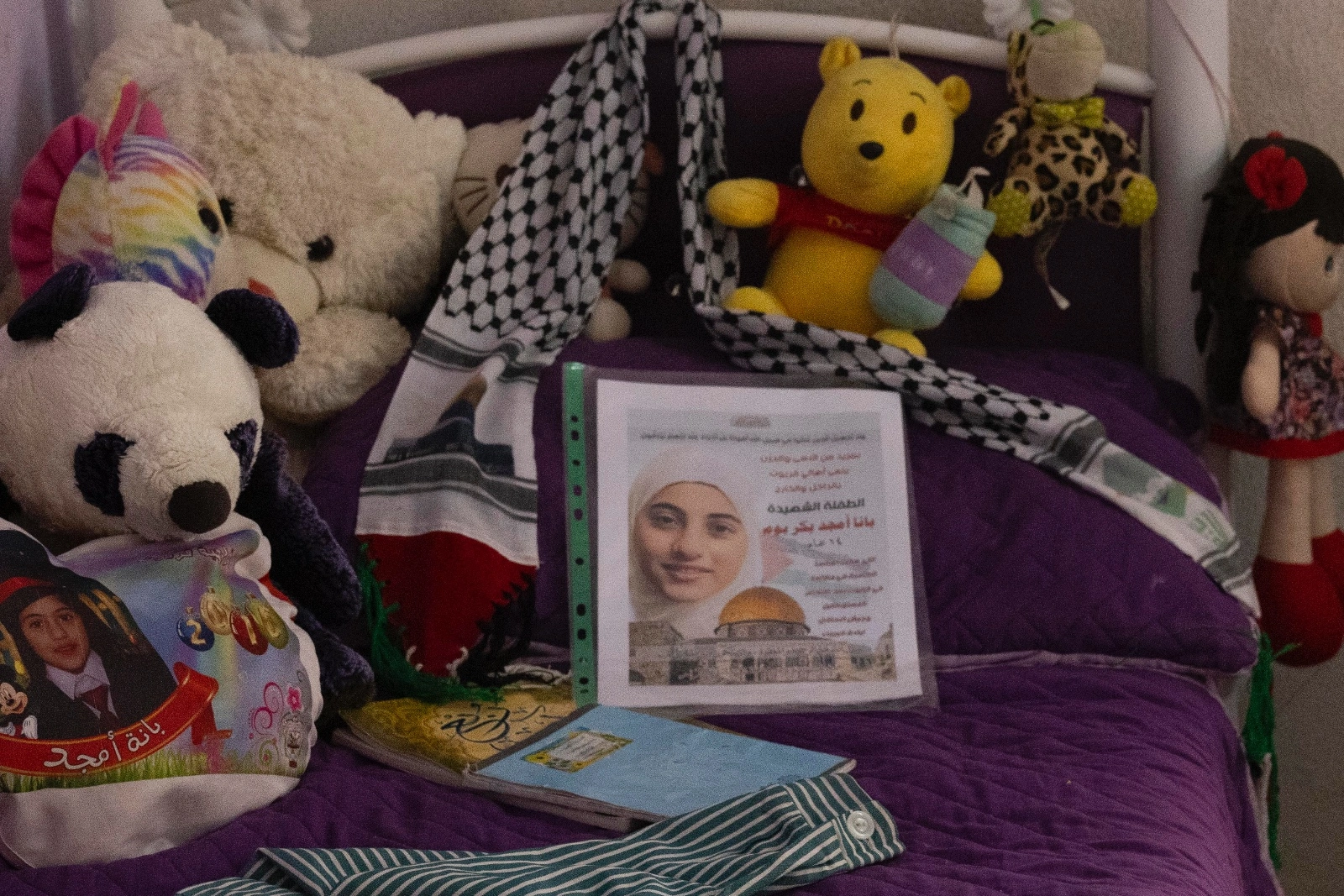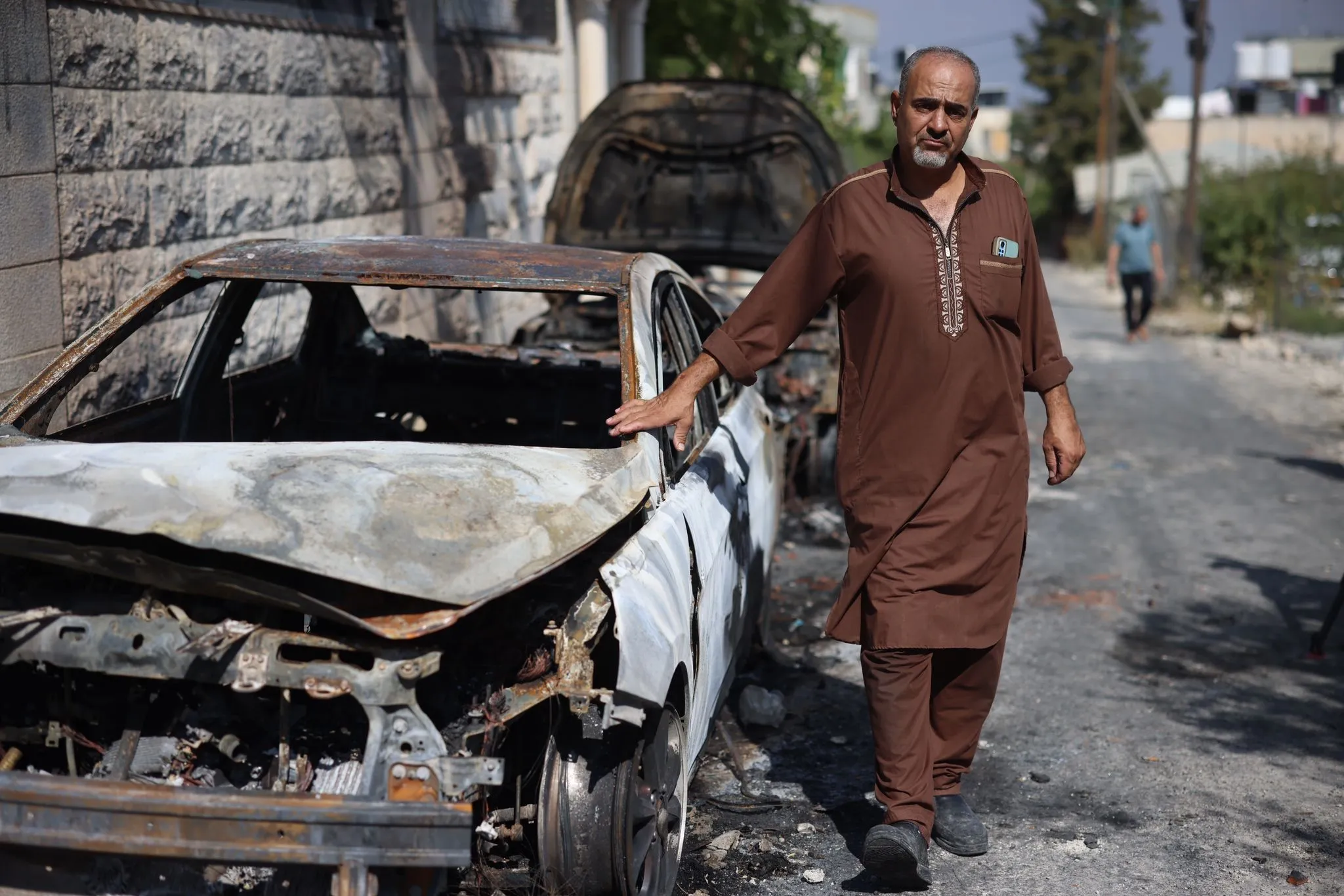- 27 Posts
- 40 Comments

 6·9 days ago
6·9 days agoThe following is an article about two of the writer’s cousins that Israel murdered in the cafe: War on Gaza: The world only saw my cousins’ deaths. I want you to know their lives
I think it’s important to not let these people become mere statistics. These oppressors are doing much more than merely killing people; they are snuffing out their present, robbing them of their futures, killing out their potential.
There are many brilliant and kind minds in Palestine that will never come to flourish because of the actions of the oppressors. Any possible advancement or contribution into this world–gone, ripped from this world, ripped from us. Every act of oppression made by these self-designated “peace-makers”, is a desecration of the past, present, and future.

 6·13 days ago
6·13 days agoElaborate.

 6·13 days ago
6·13 days agoDon’t be shy now.

 6·13 days ago
6·13 days agoElaborate.

 8·13 days ago
8·13 days agoAnother:
Yousef Abu Jalila, 38, used to rely on humanitarian aid distributed through the WFP to feed his family of 10. But no such package has arrived in over two months, and the price of what little remains in the markets has skyrocketed.
Now sheltering in a tent in Al-Yarmouk Stadium in central Gaza City, after their home in the Sheikh Zayed neighborhood was destroyed during the Israeli army’s October 2024 incursion into northern Gaza, he told +972: “My children cry to me that they’re hungry, and I have nothing to feed them.”
With no white flour or remnants of canned food, Abu Jalila has no choice but to show up at the aid distribution points or wait for the aid trucks. “I know I might be one of those killed while trying to get food for my family,” Abu Jalila told +972. “But I go, because my family is starving.”
On June 14, Abu Jalila left the tent camp with a group of neighbors after hearing rumors that aid trucks might arrive in the Equestrian club area in the northwestern part of the Gaza Strip. When he got there, he was surprised to find thousands of others hoping to bring back food for their families.
As the hours passed, the crowd drifted closer to an Israeli military position. Then, without warning, several Israeli artillery shells exploded in the middle of the gathering.
“I still don’t know how I survived it,” Abu Jalila said. “Dozens of people were killed, their bodies torn to pieces. Many others were wounded.”
In the chaos, some fled in panic while others scrambled to load the dead and injured onto donkey carts as there were no ambulances or cars nearby. “One young man was blown in half; others had their limbs ripped off,” Abu Jalila recalled. “These were innocent people, unarmed, just trying to get food. Why kill them this way?”
Shaken and empty-handed, Abu Jalila walked four hours back to Gaza City, his legs trembling. When he reached the tent, his children were already outside, waiting. “They were hoping I’d bring food,” he said. “I wished I could die rather than see the disappointment in their eyes.”

 13·13 days ago
13·13 days agoThis following excerpt is from just one of the stories in this article. Within this one alone, there is so much tragedy, so much cruelty deliberately caused by other humans–wretched humans who will never be held accountable as long as we allow the Western governments to be complicit in their crimes:
In the early hours of June 11, before sunrise, 19-year-old Hatem Shaldan and his brother Hamza, 23, went to wait for aid trucks near the Netzarim Corridor in the central Gaza Strip. They hoped to return with a bag of white flour for their family of five. Instead, Hamza returned with his younger brother’s body wrapped in a white burial shroud.
The Shaldan family had lived virtually without food for nearly two months due to Israel’s blockade, crammed into a classroom-turned-shelter in eastern Gaza City. Their home, once nearby, was destroyed completely by an Israeli airstrike in January 2024.
At around 1:30 a.m., the two brothers joined dozens of starving Palestinians on Al-Rashid Street along the shore upon hearing that trucks carrying flour would enter the Strip. Two hours later, they heard shouts of “The trucks are coming!” followed immediately by the sound of Israeli artillery shelling.
“We didn’t care about the shelling,” Hamza recounted to +972 Magazine. “We just ran toward the trucks’ lights.”
But in the chaos of the crowd, the brothers got separated. Hamza managed to grab a 25kg bag of flour. When he returned to their agreed-upon meeting spot, Hatem wasn’t there.
“I kept calling his phone, over and over, without answer,” Hamza said. “My heart ached. I began seeing dead bodies being carried over to where I was. I refused to believe my brother might be among them.”
Hours after Hatem went missing, Hamza received a call from a friend: a photo of an unidentified body had surfaced in local Whatsapp groups, taken at Al-Aqsa Martyrs Hospital in Deir Al-Balah, central Gaza. Hamza sent a cousin — a tuk-tuk driver — to check. “Half an hour later, he called back, his voice shaking. He told me it was Hatem.”
Upon hearing this, Hamza passed out. When he came to, people were pouring water on his face. He rushed to the hospital, where a man wounded in the same artillery strike explained what had happened: Hatem and about 15 others had tried to hide in tall grass when Israeli tanks opened fire.
“Hatem was hit by shrapnel in his legs,” the man said. “He bled for hours. Dogs circled them. Eventually, when more aid trucks arrived, people helped move the bodies onto one of them.”
In total, 25 Palestinians were killed that morning waiting for aid trucks on Al-Rashid Street. Hamza brought Hatem’s body back to Gaza City and buried him beside their mother, who was killed by an Israeli sniper in August 2024. Their older brother, Khalid, 21, had died months earlier — in a January airstrike while evacuating wounded civilians on his horse cart.

 1·13 days ago
1·13 days agoSince this was already posted. I am going to delete this post and submit the archive mirror to the earlier post.

 1·13 days ago
1·13 days agoVery well. I’ll update my recent posts.

 10·15 days ago
10·15 days agoI almost had today’s article confused with yesterday’s when Israelis massacred at least 80 Palestinians in Gaza.

 95·3 months ago
95·3 months ago“The Israeli army said it bombed the house because there was a Hamas officer in there, which is totally false. I know the whole family. It’s nonsense. It’s just so devastating.”
So, this wasn’t even a random bombing. It was 100^100% deliberate precise targeting.
It’s not even shocking anymore.

 2·3 months ago
2·3 months agoReading these accounts, their details, how can we not feel hatred and disgust towards those responsible?

 3·7 months ago
3·7 months agoOn June 12, Hisham Abu Is’ifan, a 54-year-old father of six and resident of Hebron’s Wadi Al-Hassin neighborhood, was on his way to his job as a clerk at the Education Ministry when he was stopped and attacked by soldiers.
“[A soldier] came over and pushed me, and then he ordered me to hand over my ID card and phone,” Abu Is’ifan testified to B’Tselem. “Before I could give him the phone, he grabbed me by the back of the neck and shoved me to the ground. My back hurt a lot and I shouted … When I kept shouting in pain, the soldier sat on me and pressed both his knees hard into my chest, until I felt I couldn’t breathe from the pain.”
Yasser Abu Markhiyeh, a 52-year-old father of four from the Tel Rumeida neighborhood, was abused at a checkpoint in Hebron on July 14 because of what soldiers found on his cell phone. “When I got to him, [the soldier] ordered me to hand over my ID card,” he recounted. “I did, and he ordered me to unlock my phone and hand it over, too. I heard him talk to someone on the wireless radio and say my name.
“About five minutes later, four soldiers arrived at the checkpoint,” Abu Markhiyeh continued. “One of them spoke to me in Arabic and accused me of contacting Al Jazeera and slandering the Israeli army. I told him that I had, in fact, spoken to Al Jazeera three weeks earlier about soldiers who attacked me on June 22 … Then he tied my hands behind my back with zip ties and fastened them very tight. Two soldiers pounced on me and started beating me, including in the testicles, for several minutes.”
Mahmoud ‘Alaa Ghanem, an 18-year-old who lives in the city of Dura in the Hebron district, was attacked by soldiers in Hebron on July 8. Like Abu Markhiyeh, he also had his phone inspected by soldiers. Upon opening Ghanem’s Instagram, they found a meme of an Israeli soldier saving young children on October 7 with the word “Photoshop” written on it, mocking the army’s apparent ineptitude in the face of the Hamas attack that day.
“He asked me about it, and I said it was just a picture,” Ghanem told B’Tselem. “He said, ‘We’ll show you Photoshop.’”
After a few minutes, Ghanem was put on the floor of a jeep and driven away. “One of the soldiers grabbed me by the hair and slammed my face into the back door, three times in a row,” he said. “I felt that my mouth and nose were bleeding. The soldier asked me, ‘Do you like Hamas?’ I said no, and then he grabbed me by the arm, twisted it around my neck and strangled me … Two soldiers started slapping me and asking me again: ‘Do you like Hamas?’ Again, I said I didn’t, and then one of them hit me hard in the testicles. I screamed in pain, and then he hit me harder in the same place. I begged him in the name of God to stop hitting me.”
“One of the soldiers came to me and put his cigarette out on my right leg,” Muhammad A-Natsheh, a 22-year-old from Tel Rumeida who was detained on July 14, told B’Tselem. “He put it out slowly, so it would hurt more. One of them asked: ‘Does it hurt?’ When I said yes, he punched me in the back of the head, stood on my legs and pressed down hard.”
A-Natsheh continued: “One of them got an office chair and put it on my legs. He sat on it from time to time, which hurt a lot. They kept swearing at me the whole time, and one of them spat at me, too. It went on like that for about an hour, and then one of the soldiers said to me in Arabic: ‘We’ll rape you’. One of them grabbed my head, and another soldier tried to open my mouth and shove a rubber object in it. I made a huge effort not to open my mouth. I heard him say in Hebrew: ‘Film him, film him.’
“Then a soldier who spoke Arabic came,” he went on. “He came over and ordered me to get up, but I couldn’t. He grabbed me by the neck, lifted me up and made me stand facing the wall, and then he started pushing my head left and right violently with his hands, saying: ‘If I see you in this place again, I’ll rape you and kill you. I’ll do the same to anyone else I see here.’”
“The soldiers brought ice and put it down my underwear,” Qutaybah Abu Ramileh, a 25-year old from the neighborhood of Al-Salayma who was detained on July 8 along with his 22-year-old brother, Yazan, told B’Tselem. “Yazan told me afterwards they did the same thing to him. They also poured an alcoholic drink into our clothes. I heard a soldier talking to a girl on the phone. I think it was a video call. They were laughing and making fun of us.
“One of the soldiers kicked us in the head and face while cursing us and our mothers,” he continued. “Then, suddenly, I heard the sound of a leather belt coming from above, and one of them started whipping us with a belt on our heads and all over our bodies … The soldiers stepped on our [bare] feet. The beating with the belt lasted about three minutes, and then the soldiers brought a bucket and put it on my head. Later, I understood they also put a bucket on Yazan. They started playing with a ball or something like that, and threw it at the bucket on my head. It hurt every time the ball hit the bucket. It was hard to breathe and I felt like I was suffocating.”
“The soldiers ordered us to leave,” she said. “My husband turned the car around, and the soldiers were still surrounding us. One of them looked at me and winked. He gave me a mocking smile and then I saw him pull the pin on a stun grenade and throw it between my legs. I pushed the grenade away and it fell under the seat. I shouted, ‘Grenade! Grenade!’ and ducked to the other side. [My husband] turned around to me when I shouted, so the grenade exploded under his face. He passed out. Thank God, the car stopped by itself.”

 4·7 months ago
4·7 months agoIsrael was founded by rape, murder, and theft. Their descendents justify these actions, glorify the perpetrators, and follow in their footsteps by committing the same heinous crimes. Rapists, murderers, and thieves. . . That is all they are, and it is time they are treated as such: Rapists, Murderers, and Thieves.

 11·8 months ago
11·8 months agoThe Ghost Unit’s Key Features and Capabilities Ghost Unit 888 operates on a unique, high-speed combat philosophy called the “kill chain,” aimed at instantly detecting and killing targets. Its rapid response strategy is designed to close the detection-to-elimination cycle in mere seconds, far faster than traditional combat timelines. For instance, recent conflicts like Ukraine demonstrate a five-minute detection-to-response time, yet Unit 888 seeks to compress this to near-instantaneous action.
In short, they don’t take time to discern whether or not the target is a civilian or combatant.

 22·10 months ago
22·10 months ago“I’m sorry for the harsh words, but Gaza gave us strength. At least I buried my daughter whole; in Gaza, children are buried in pieces.”

 1·11 months ago
1·11 months agoNo, the url for this one is a bit extended, so maybe the old posts don’t show up in the crosspost section.

 20·1 year ago
20·1 year agoRead the article if you haven’t already. It’s much more horrific than one would think.
And if that bloodbath wasn’t enough, just hours later, at dusk, soldiers burst into the Jenin home of Wafa, a 51-year-old social activist who had never been arrested before, ransacked the house and took her with them when they left. She remained in their jeep, bound, for about four hours. Then, as the vehicle started to move out toward their base, it exploded (apparently after a device was thrown at it), leaving the woman seriously wounded; both legs were subsequently amputated above the knee. She is hospitalized in serious condition in Jenin’s Ibn Sina Hospital, ventilated and barely responsive.

 6·1 year ago
6·1 year agoPolitical activist, Owen Jones made a video covering this article along with others covering Israeli atrocities and crimes against humanity including sexual assault and arbitrary executions.
It is shocking that CNN would even release this article given its history of bias amounting to journalistic malpractice. It just goes to show that Israelis have become so emboldened in committing the atrocities they commit that they do not even try to hide it to the point that it is impossible to ignore or overlook. Killing, torturing, and raping the Palestinians or even anyone that is not a Zionist Israeli/Jew/Hewbrew/Whatever-the-fuck-they-call-themselves has been engraved into the psyche of the Israeli public as being fine, a non-issue, a necessity even. To them, all this, all that has transpired for the past century since their ancestors migrated to this tiny spot of land and started oppressing, terrorizing, murdering, bombing, torturing, raping, pillaging the native peoples has all been nothing but a common occurrence.
In their cowardice, they refuse to acknowledge the weight of their sins, and in their arrogance, they justify them. Is there really anything even left to say that has not already been said time and time again? The only thing that is left for me to express repeatedly is disgust. I am disgusted by these people. I am disgusted by their history. I am disgusted by their ideology. I am disgusted by their psyche. I am disgusted by their action. I am disgusted by their oppression. I am disgusted by their appropriation. I am disgusted by their everything. Ironic that it is Israel that made me understand on an empathetical level not just the intense hatred of the Nazis, nor just the people in power nor just those doing their bidding, but of Nazi society as a whole.




















‘An absolute massacre’: Aftermath of Israeli attack on popular Gaza cafe
Video discussing some of the people that were killed. A photojournalist, female boxer, an old man, a few little girls (one of which was having a small birthday party where she was being gifted a teddy bear)–the usual targets.
I’ve heard this was done by an F16 missile strike. The Israeli pilot, the IDF, the Israeli government, the Israeli state-- they massacred 37 innocents in this terrorist attack, killing all but two that were in this cafe.
Death, death to the IDF